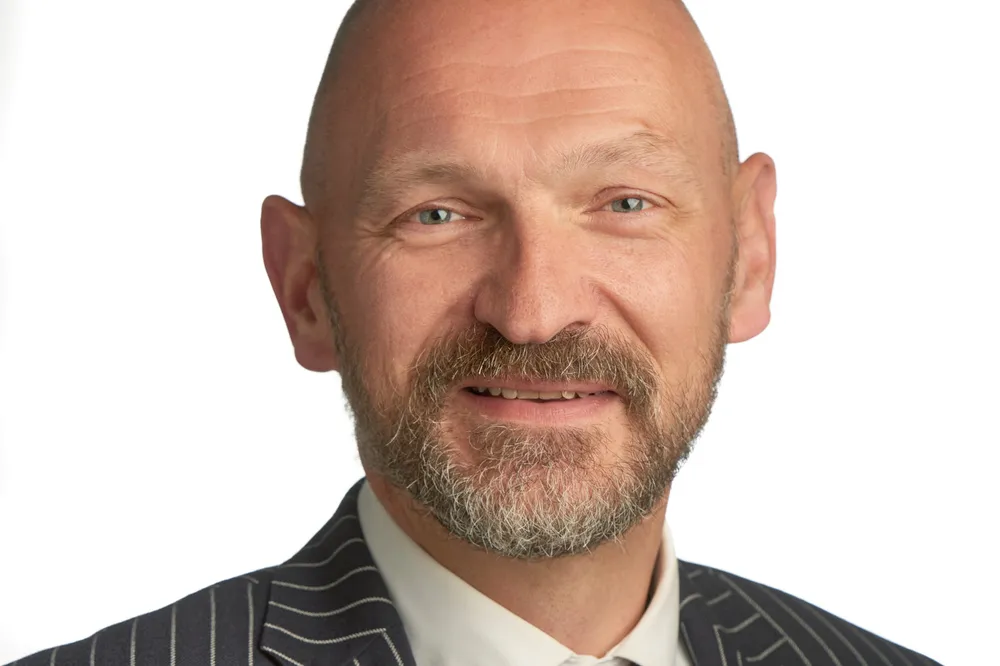British Gas chief questions UK wind power focus and subsidies
New UK Labour government has pledged to massively build out wind power generation, but Centrica CEO queries wisdom of pinning energy transition hopes on the sector

The UK must avoid becoming overly fixated on building more wind farms, warns the chief of British Gas owner Centrica, claiming that its existing fleet has recently been running at a mere 15% capacity.
The UK currently has around 30GW of wind power capacity, split almost equally between onshore and offshore generation, making it a world leader in the sector.
With much of country having recently enjoyed “beautiful" weather, Chris O’Shea, CEO of energy company Centrica, wrote on LinkedIn today questioning whether this has translated into a boost for renewable energy generation.
Over the last week, O’Shea cited statistics showing that UK wind power has generated 4.41GW of electricity on average.
“This means less than 15% utilisation. If you look over the last year, wind has generated 9.43GW, which takes the utilisation up to 30%,” said O’Shea, whose company Centrica owns UK energy and home services provider British Gas.
“So when we’re looking at the energy system of the future, we need to think carefully about whether focussing too much on building more wind generation will help, or will it simply mean the utilisation of the UK’s wind generation fleet becomes worse?”
O’Shea also questioned why subsidies are needed for wind farms in the form of a guaranteed price for the electricity produced.
Currently, through the UK’s annual Contracts-for-Difference auctions, the government guarantees renewable energy providers a minimum price they will receive for their power, which helps make building new projects economically viable.
The mechanism also caps the price that those same providers can charge for energy, helping keep prices down for consumers.
O’Shea said that while this system has “served us well in the past” and “may well serve us well in the future… but we should at least ask the question” regarding whether it still works as it should do.
“Whilst wind power is great, we run a real risk if we focus too much on new wind as we look to decarbonise the energy system of the future. A net zero future requires a range of technologies, and a good balance.”
Although not mentioned by O’Shea in his post, the figures he posted also showed that despite the sunny weather enjoyed by much of the country recently, its 15.6GW of solar farms have also only been running at around 16% capacity.
In total, over the last week, renewable energy has provided 27% of the UK’s power generation, with fossil fuels on 29.5% and other sources, primarily nuclear, providing 24.8%.
The remaining 18.6% of power has been imported via interconnectors with regional neighbours France, Belgium and Norway.
"Electricity production from wind naturally depends on the weather, so periods of lower and higher output are expected," said Peter Lloyd-Williams, senior commercial wind analyst at Westwood Global Energy Group.
"The key is to build an electrical grid that can cope with these natural variations," he said, including by building up the UK's wind power capacity in the Celtic Sea, hedging the country's dependence on the North Sea, where the majority of its current fleet is located, and by continuing to build interconnectors.
Over the whole of last year, National Grid reports that wind power contributed almost 30% of the UK's power generation, with renewables together contributing around 40%.
The new Labour government led by Prime Minister Keir Starmer was elected on a promise to turn the UK into a ‘clean energy superpower,’ aiming to double onshore wind capacity from 15GW and quadruple offshore wind capacity from around the same level by 2030.
Centrica said last year that it was looking at the potential for large-scale North Sea green hydrogen production linked to offshore wind.
(Copyright)